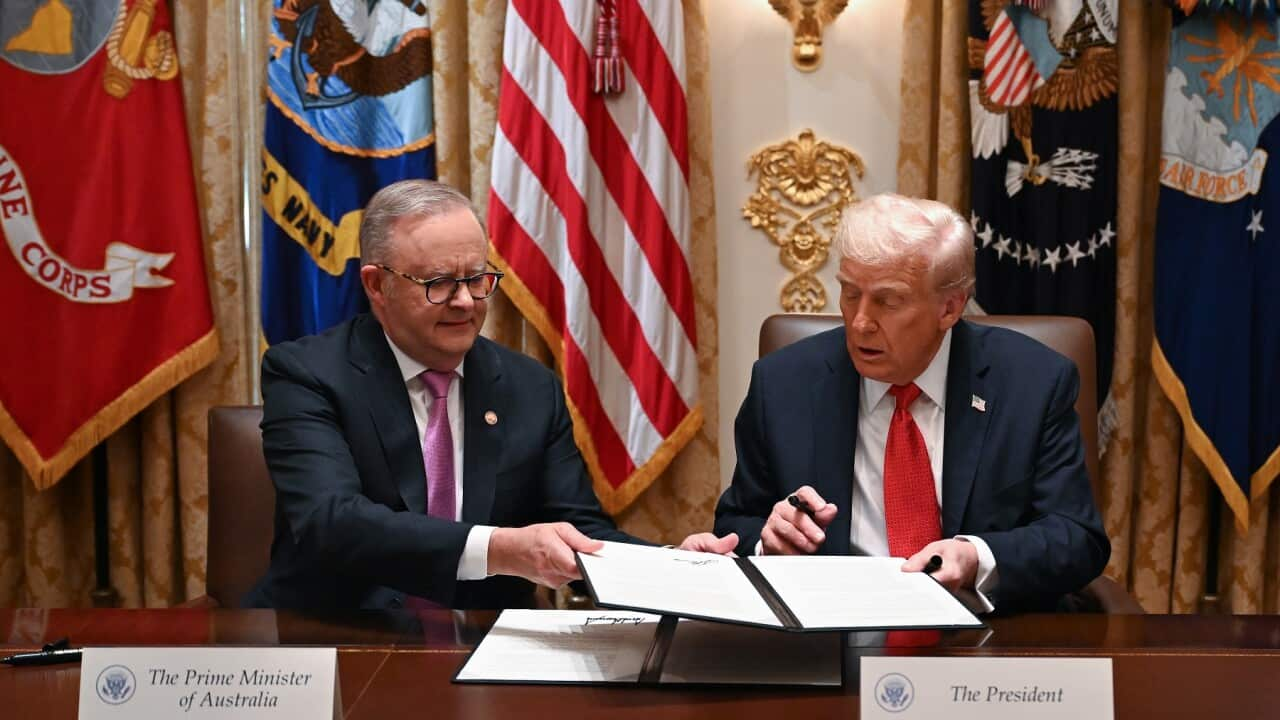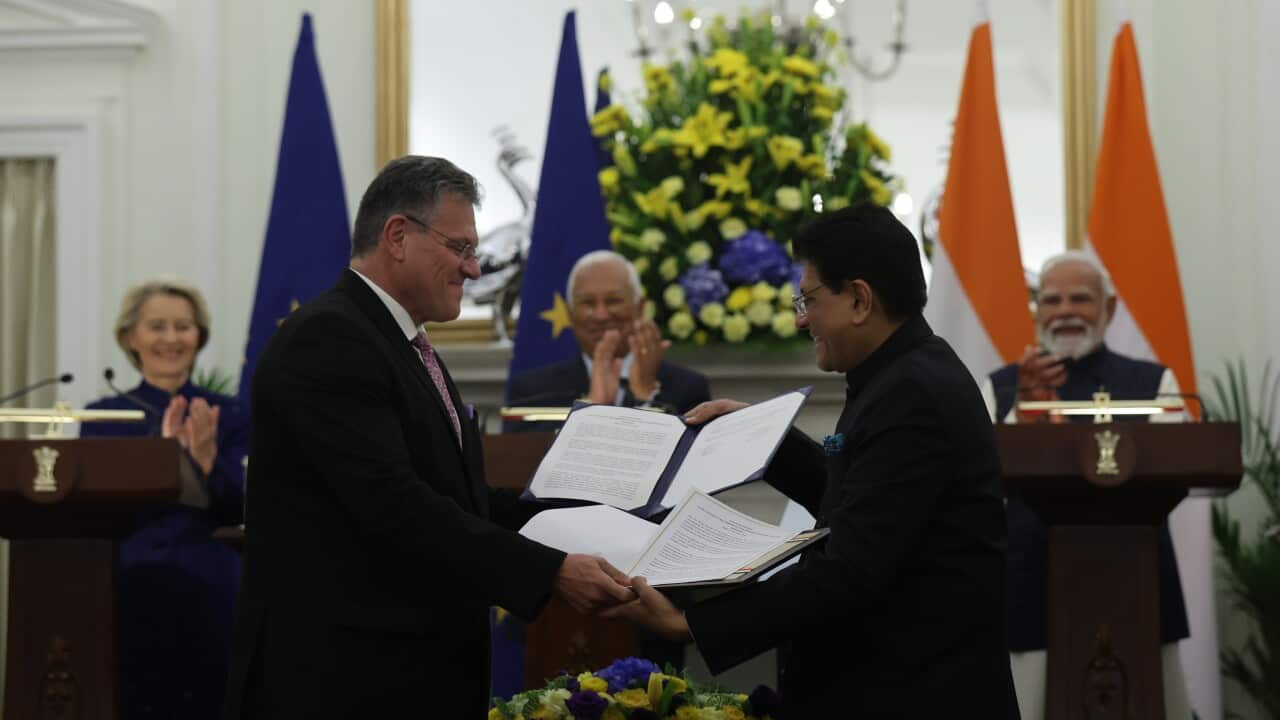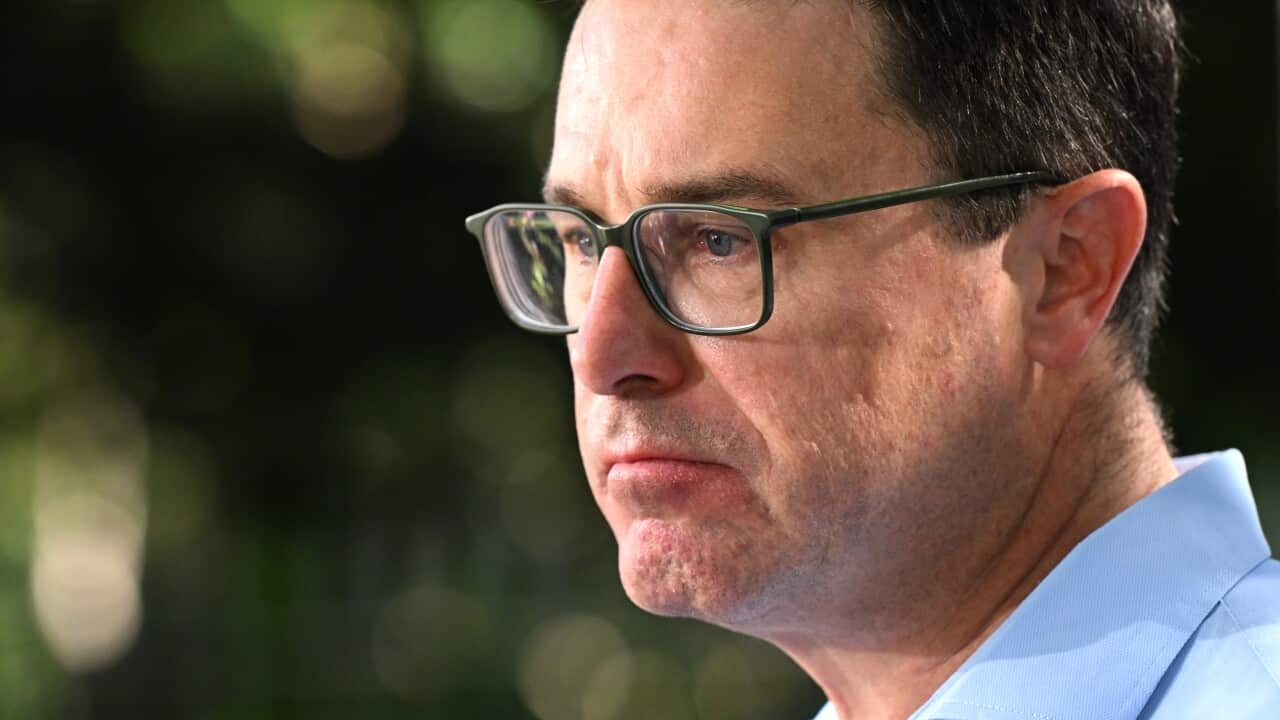"Have you ever been in a refugee camp? Like Nauru and stuff? Excuse me, are you bullying this girl? No I'm asking questions ..You are asking absolutely outrageous questions. If you're Australian I am disgusted."
An undercover investigation, in which situations were staged by actors to see how bystanders react to racist comments.
"You're in our country, we helped save you, from where you came from , from where you've been persecuted, and you wear things like that!" (Woman:)"What should I do then? What should I do then?" .."Well why don't you dress like other Australians?"
An excerpt from the documentary, "Is Australia Racist?" that begins Face Up To Racism week on SBS. (26th Feb - 5th Mar)
Professor Kevin Dunn, from Western Sydney University, led the survey of just over 6000 respondents.
It examined issues including attitudes to cultural differences, tolerance of specific groups and racial hierarchy.
"If you're an Aboriginal Australian in our survey, half of the respondents, 50 per cent of Aboriginal Australians would tell us that they've experienced racism in education or perhaps in seeking employment, or while in employment - that's double the rate for their non-Aboriginal peers in the survey."
The rates for Australian Muslims' experience of racism was even higher.
"60 per cent of Australian Muslims in the survey told us they've experience racism in an educational setting or in an employment setting or when seeking employment."
Professor Dunn says the increase in racism over the past 10 years is now a public policy issue that needs urgent attention.
"On the basis of this data and other data that we are facing almost a national calamity in terms of what is called Islamophobia. Do you know, 60 per cent of people in the survey said they'd be concerned if one of their relatives were to marry someone of Muslim background. That's a very high level of concern towards that particular group."
Property Investor Ping Hu moved to Australia from Shanghai 28 years ago.
He says he still faces racism because of his heritage - recently his advertising billboards in front of a construction site were defaced with anti-Asian posters.
"Because our face is Asian so even it doesn't matter how many years here, how long, even for our children, because their face is Asian... We need to do something to stop this. Australia shouldn't be like this."
Lebanese Site Manager Mohammad Morgani says it's an insult to all races in the country.
"Go back to your country you Asian people. When I read it was a message to me as well. So it's not only in particular to Chinese. If this developer is Lebanese it would be again, Lebanese. Lebanese people are working really hard as well like the Chinese, like the other communities as well. We've been working in Australia for hundreds, ove r 125 years in the construction. Some Lebanese work in the Opera House, and some Lebanese work in the Harbour Bridge and we will continue and we're not going to stop. "
Professor Dunn says the survey shines a light on issues that deserve attention.
"Some of the hopeful findings in our survey are that 80 per cent of Australians see cultural diversity as a really positive thing, so that's a great finding and by the same token about the same proportion, 80 per cent, acknowledge there's a problem with racism. And the same proportion again say something should be done about racism. So there's strong community, strong public support for action against racism, the racism which is unfairly distributed across the ethnic groups in our country."
B/A : Face Up To Racism week begins on SBS on Sunday 26 February at 8.30pm with Ray Martin investigating the question: "Is Australia Racist? "




